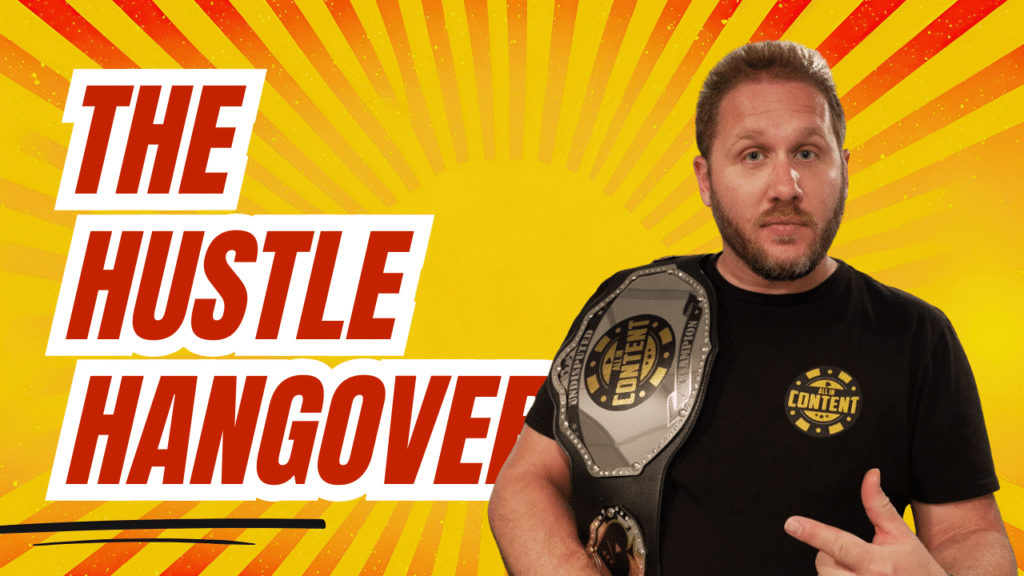While looking to leap to the next level of success, you’ll need to become more efficient with everything. To take your career up a notch, focus yourself and your team’s efforts on working smarter, not harder. There are always new ways of accomplishing work, challenging the status quo to achieve higher success levels.
How To Work Smarter, Not Harder?
The ability to work smarter, not harder, can sometimes be easier said than done. Many people struggle to do this because they are stuck managing on autopilot (sleepwalking through tasks) or disorganized, failing to devise a plan for improving performance. Here are nine tips to immediately work smarter, not harder, that will enhance your work instantly.
1. Aim to simplify processes
When was the last time you looked at processes for improvements? If you haven’t done so, map out core processes end-to-end, looking for opportunities to improve and simplify. The simpler a process is, the easier it is for everyone and the less likely a breakdown. Design your methods with the result in mind. Aim for the most straightforward path with the least number of steps to get there.
2. Get out the scissors and cut non-value tasks
Whether it comes from Start, Stop, Continue sessions, or just the process of taking a hard look at the work you or your team does, guaranteed some tasks could only be stopped. If it doesn’t provide enough value to your end customers or the people doing the work, stop it. A simple activity I have used throughout my career leading teams is to give employees sticky notes, asking them to list out everything they do: meetings, tasks, reports. Put them up on the wall and ask what the purpose of each is and whether it still needs to happen. I once found out that an employee was completing a daily report that took 30 minutes to build that no one was looking at or reviewing for over a year. Talk about gaining time back, 16.25 days a year!
3. Work smarter, not harder, by investing in self-service
Customers, both internally and externally, prefer to help themselves first. To work smarter, invest in self-service so a percentage of your customers can help themselves, reducing your overall workload in the process. You don’t have to spend tons of money creating self-service either. When I managed rental car branches, I realized I was getting many of the same questions from customers each day. Some days were busier than others to so there might be a lineup of people wanting to get their rental car to start the day. To make us more efficient, I made a big sign with the top three frequently asked questions. I posted it so everyone could see the critical information they needed before approaching the desk. By training our customers, we were able to work smarter, improve their and our experience.
4. Prioritize and delegate
You can’t tackle everything that is thrown on your plate all at once. Working on multiple projects or tasks at the same time isn’t overly useful, either. Multitasking ensures that you focus more on quantity than quality. To improve, prioritize tasks, determine whether they are urgent and vital, and when they should be tackled. If you are not delegating already, too, you need to start doing so. Free yourself up and get out of the day-to-day while providing development opportunities for others by delegating value-added tasks to others that you don’t need to do yourself.
5. Stop meeting madness becoming more efficient
Everyone likes to complain about meetings, but very few want to do anything to stop the madness. No agenda or apparent reason to be there? Then don’t go or send someone else. Don’t be afraid to ask the meeting organizer what the purpose of the meeting is about? If you are not going to have an action item coming from a meeting, then what is the point of you attending? Avoid the dreaded “Touch Base” invite that is just a chance to catch up like the plague too. Move away from the default 1-hour meeting too. Do you think you could accomplish the same in 30 minutes or less? I bet you can try it. People like to drag out meetings, but you can usually accomplish the same outcome in less time if you are more effective.
6. Surround yourself with talented people
The smartest leaders surround themselves with people who are not only talented but fill in the gaps in areas where they are not as strong. Don’t hire a bunch of people who think, act, and remind you of yourself. Add different perspectives, experiences, and talents to your team. It will open lots of opportunities for delegation and improved productivity. You will need to mold good people into great leaders as well. I like to think of myself as a general manager of a sports team. Because I am Canadian, I believe in hockey terms. Would a general manager put a team full of forwards on the ice? No, you need to have a goalie and defense to ensure all roles and responsibilities are filled.
7. Become more efficient by learning how your time is spent
Time is a form of currency. How you spend time is up to you. Just like checking your bank account, you need to review how you spend your time regularly. Do an audit and see where your time is being spent. Are you stuck in meetings all day? How much time do you devote to coaching and developing your team? How much time do you waste checking your phone, social media, or getting lost somewhere on the Internet? By learning how your time is spent, you can make course corrections to make you more productive. You should also know how your team’s time is spent, but don’t nickel and dime them.
8. Utilize technology to capacity, including automation
Many people and organizations are underutilizing technology. We work harder than we need to sometimes unnecessarily. There are plugins, tools, or software that can improve performance but are not utilized to capacity. Do yourself a favor and check out the apps that you can add to just your email alone that could elevate you or your team’s workload. Many organizations provide their people with collaboration tools that go unused. If utilized, it would improve everyone’s output and efficiency. If you are interested in learning about some of the technology that I find most useful, email me and let me know, as I am happy to share.
9. Think Lean
Continuous improvement is a mindset and should be considered a core competency for everyone throughout the organization. If you genuinely want to work smarter, not harder, you should familiarize yourself with Lean thinking. Focusing on the way to address improving and eliminating the following eight forms of waste will help take you and your team to the next level with working smarter too:
- Defects
- Overproduction
- Waiting
- Non-utilized talent
- Transportation
- Inventory
- Motion
- Extra-processing
Final Thoughts
Working smarter, not harder, needs to be deliberately part of the plan for all leaders at all organizations. To continue to scale efforts and be the best person, team, or organization possible, the more efficient and productive you can be, the more success you’ll find.







